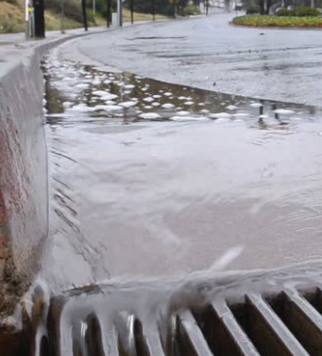THUNDER BAY – The city won't be changing how it collects money to manage stormwater.
In a brief update to Thunder Bay city council on Monday night, city administration said it was holding off on implementing a stormwater management user fee, which has also been referred to as a rain tax.
A financing study was launched in the fall of 2017 to determine a long-term strategy to pay for the city's stormwater management infrastructure, following the adoption of a management plan in 2016.
Currently, funding for stormwater projects is collected through the general municipal levy, urban sewage and drainage levy, and the sewer rate charge.
City project engineer Aaron Ward said the financing study was about determining whether the existing methods of collecting money was the right way, and whether property owners who contribute to stormwater runoff are paying their fair share.
"Based on our current taxation system, people are paying based on the (Municipal Property Assessment Corporation) assessed value of their property," Ward said. "We were looking into if that made sense for generating revenue for stormwater or not. If we went towards the user fee or stormwater utility model, people would not be paying for stormwater based on their assessed value. They would be paying based on another indicator, which is generally imperviousness or how much hard surface area a property has."
In a memo that was provided to council, Ward said high initial costs and increased ongoing costs to administer the fee are prohibitive.
Stormwater user fees have been implemented in other Ontario municipalities, including London, Kitchener, Mississauga and Waterloo.
In 2019, the city is spending $5.63 million for stormwater management projects. Thunder Bay will be receiving $13.1 million from the federal government's Disaster Mitigation and Adaptation Fund, which provides 40 per cent funding for the total $33 million costs over the next nine years.
